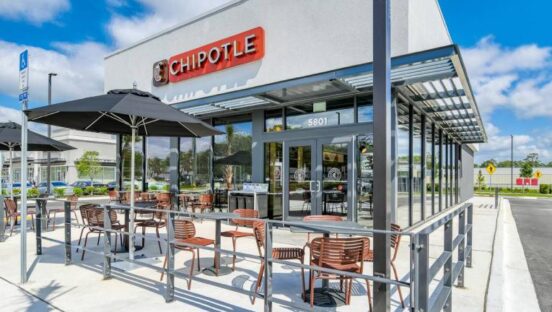




A Step Forward
Sexual harassment accusations and chargers aren’t only appearing in the entertainment industry.
In the restaurant world, we’ve seen Mario Batali, John Besh, Johnny Iuzzini, and others step down from their positions in the wake of harassment allegations, and we’re starting to understand the widespread impact of harassment on the entire industry.
According to a report by Eater 90 percent of women in the foodservice industry have experienced some form of sexual harassment and workers within the industry have filed more harassment claims than those of any other industry.
Below are four steps restaurant owners and groups can take to curb sexual harassment, and create (and maintain) a safe workplace environment for all employees.
Click the arrows in the picture above to begin the story.
It starts with the interview
It all starts with hiring the right people and doing a thorough screening during the interview process. While there is no way to know for sure if someone may pose a sexual harassment threat to the restaurant staff, there are clues to pay attention to throughout the hiring process in order to mitigate that risk.
For example, pay attention to how they treat different administrative staff or employees when they come in for an interview. Are they respectful? Do they acknowledge them and others in the lobby? It also can be smart to host an interview off-site to see how the person acts outside a potential workplace. If it’s a coffee shop, how are they treating the baristas? Even taking a look at a candidate’s online presence can help provide insight into their character. Are they posting anything offensive? Do they seem combative with what they’re sharing?
Then make sure to get the perspectives of multiple people and get their feedback. They may have noticed something you didn’t.
Understand the culture
What many restaurant leaders may not realize is that even if harassment happens offsite, but occurs with coworkers, the restaurant can still be liable for harassment if an employee makes a claim. Therefore, it’s important to keep a pulse on what groups normally get together after-hours, or even people that work odd-hour shifts frequently together when less people are around.
Set the tone from the top
A restaurant can have all the right rules and policies in place, but if leadership does not enforce those policies or doesn’t apply them to the star employees, the message will get lost. Employees will fear speaking up in case their claim isn’t taken seriously or the perpetrator isn’t held accountable.
This is a common misconception as many restaurants and restaurant groups look to HR to create the best policies, administer training and enforce them; however, if the CEO or manager of a restaurant doesn’t take it seriously, employees won’t either.
Train managers
Oftentimes companies will deploy the same harassment training program to all employees; however, managers and leaders need to be educated differently because they may have to handle claims or allegations an employee brings up, which is a different training. Managers are often the first place an employee goes, so it’s crucial they understand what harassment claims and reports entail. They also need to understand the applicable laws and policies, so they protect both the employee and the company.
Staff-level employees should be trained on what constitutes as harassment, who to go to if they experience or witness it, and the rights employees have, whereas managers should be advised on what harassment claims and reports entail. Managers also need to understand the applicable laws and policies, so they protect both the employee and the restaurant.
Too often managers aren’t trained well and they may assume someone is guilty (or innocent) before conducting an investigation and talking to all parties involved. Managers also need to know how to respond to an employee that feels unsafe and what tactics they can use to make them feel safer at work.
Adam Ochstein is the founder and CEO of StratEx, a human resources software and consulting firm that specializes in helping restaurant owners and leaders manage all things HR; from scheduling and payroll, recruiting and retaining talent, to staying on top of labor laws/policies.












